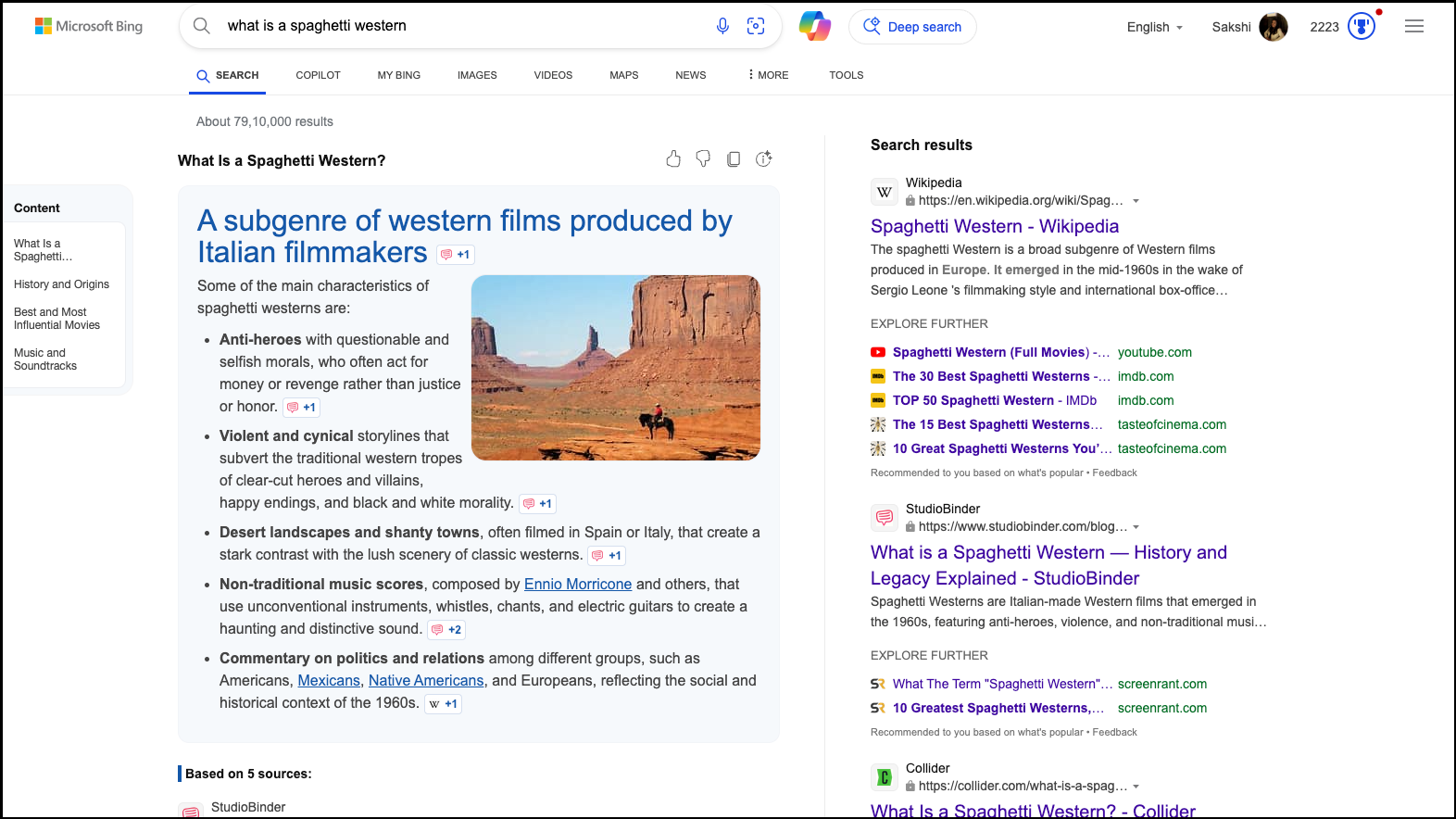- Generative Search on Bing combines search results and language models to provide answers to user queries.
- Bing would still continue to show traditional search results but they have been pushed to the side (literally to the right) while AI results take center stage.
- Unlike Google's AI overviews, Bing's AI results highlight references and sources more prominently.
- The experience is being rolled out slowly, though, and is currently available for a small number of user queries only.
After Google's AI Overviews made a lot of headlines, Microsoft also just unveiled the Generative Search Experience for its search engine Bing. The company introduced AI-powered chat answers for users queries last year in February as part of their ongoing Copilot-ifcation of all Microsoft services.
But now, they're taking it one step further where they're combining the power of small and large language models (no word on which models as of yet) with the search results to produce more comprehensive results for the user queries.
The result is an AI-curated information-loaded page, filled with references, in a layout that's reminiscent of Arc Search's Browse for Me feature (at least for me). However, there's one major difference, well, two, to be exact; Bing still shows search results on one side along with generative search answers, and unlike 'Browse for me' in Arc search, you don't get to decide whether you want typical search results or AI-powered search results.
The feature is currently only shipping to a small number of user queries. Users can get a taste of the feature by visiting the 'What is a spaghetti western' query on Bing where the generative search experience shows information about the genre with its history and origins, examples, etc. in the center and traditional search results are available on the right. It also features a document index for the result curated by the AI.

According to Microsoft, the search generative experience can fulfill the intent of the user query more effectively, as AI first understands the user query, and then reviews millions of search results to provide the information that's easier and faster to read.

However, the tech giant is treading lightly considering all the controversy that surrounds generative search. First, there have been plenty of instances of misinformation (Google AI Overview's suggestion to put glue on pizza) and plagiarism (Perplexity ripping off from publications like WIRED, Forbes, etc. without any credit).
Then, there's also the concern about how AI in search engines would impact traffic to publishers whose data AI uses to provide the information. Microsoft says that they would closely monitor the feature over the coming months to make sure that the feature can support a "healthy ecosystem" on the web.
They also say that in its initial data, there's no indication of negative impact on traffic to websites with the generative search experience. However, until we see this "data", it'll be hard to take them at their word.

